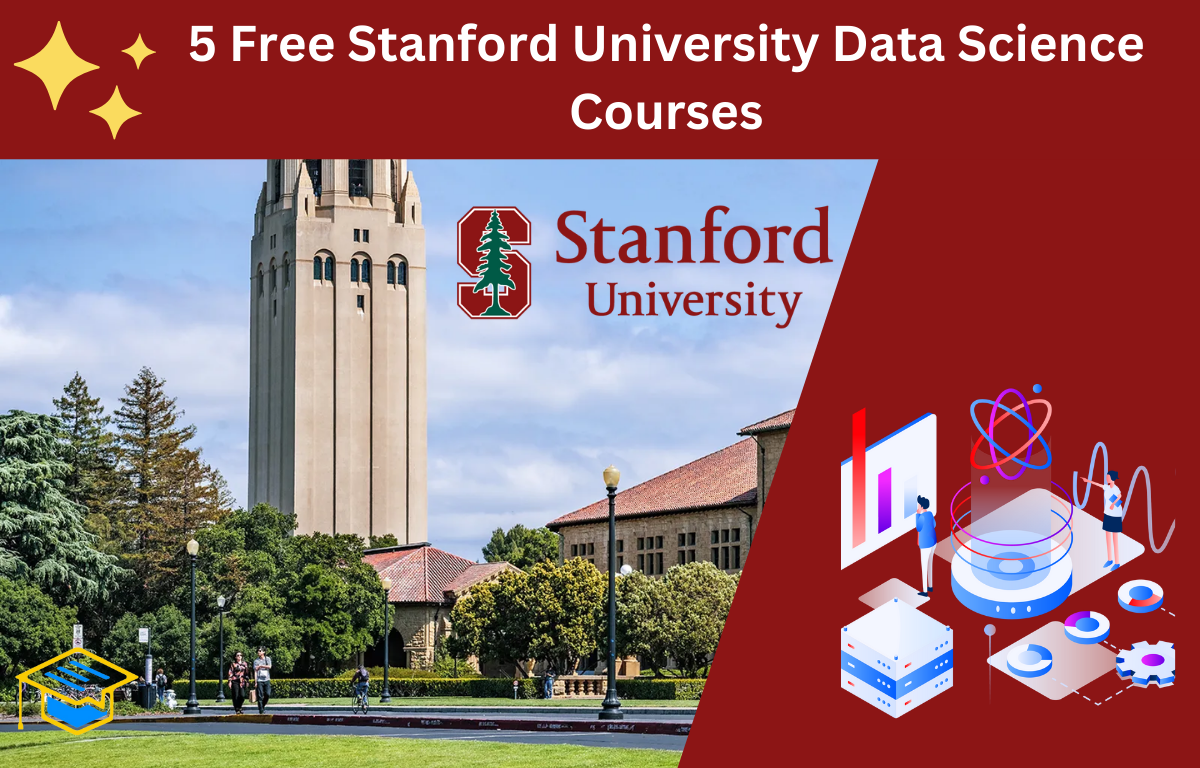5 Free Stanford University Data Science Courses
5 Free Stanford University Data Science Courses. When it comes to launching a career in data science, the first step often involves equipping oneself with the right skills. These skills range from programming fundamental databases and SQL to machine learning and working with large datasets.
Stanford University, renowned for its groundbreaking research and innovation, offers a multitude of free courses that can help you master these essential data science skills.

Programming Fundamentals: The Cornerstone of Data Science
Stanford's Programming Methodology course is your starting point, primarily focusing on Python, a language revered in the data science community for its simplicity and power.
This course boasts a comprehensive curriculum that starts from the absolute basics, making it an ideal choice for beginners. It takes you on a journey through Python fundamentals, from understanding variables and control flow to exploring built-in data structures such as lists and dictionaries.
The course also explores image processing using Python and introduces concepts of object-oriented programming and memory management.
Link:
Databases and SQL: The Backbone of Data Handling
Once you have a firm grip on programming fundamentals, the next stop is Databases. This course, taught by Prof. Jennifer Widom, is spread across five self-paced modules on edX.
This course aims to provide a strong understanding of databases and SQL, which are absolutely crucial for any data-centric career. It starts with the basics of relational databases and gradually moves towards more advanced topics.
Here’s a glimpse of what you’ll learn:
- Relational databases and SQL
- Query performance
- Transaction and concurrency control
- Database constraints, triggers, views
- OLAP cubes, star schema
- Database modeling
- Working with semi-structured data like JSON and XML
Links to the courses:
- Databases: Relational Databases and SQL
- Databases: Advanced Topics in SQL
- Databases: OLAP and Recursion
- Databases: Modeling and Theory
- Databases: Semistructured Data
Machine Learning: The Future of Data Interpretation
Your next destination is Stanford's Machine Learning course. This course is counted among the top ML courses globally, offering a deep dive into the world of machine learning.
This course equips you with the skills to build predictive models, analyze data using Python and SQL, and answer business questions. It covers:
- Supervised learning
- Unsupervised learning
- Deep learning
- Generalization and regularization
- Reinforcement learning and control
Statistical Learning with Python: Making Sense of Data
The Statistical Learning with Python course is a Python-based version of the popular ISLR book on statistical learning. It serves as an excellent tool for understanding data science and statistical modeling.
The course curriculum is extensive, encompassing:
- Linear regression
- Classification
- Resampling
- Linear model selection
- Tree-based methods
- Unsupervised learning
- Deep learning
Mining Massive Data Sets: Handling Data at Scale
Last but not least, the Mining Massive Data Sets course is designed to help you work with and analyze large datasets.
To make the most of this course, you should be comfortable with programming (preferably in Java or Python) and have a good understanding of probability and linear algebra. The course covers:
- Nearest neighbor search in high-dimensional space
- Locality Sensitive Hashing (LSH)
- Dimensionality reduction
- Large-scale supervised machine learning
- Clustering
- Recommendation systems
Conclusion
These five free courses offered by Stanford University cover almost every aspect of data science. It is a comprehensive, self-paced learning path designed for both beginners and experienced professionals.








